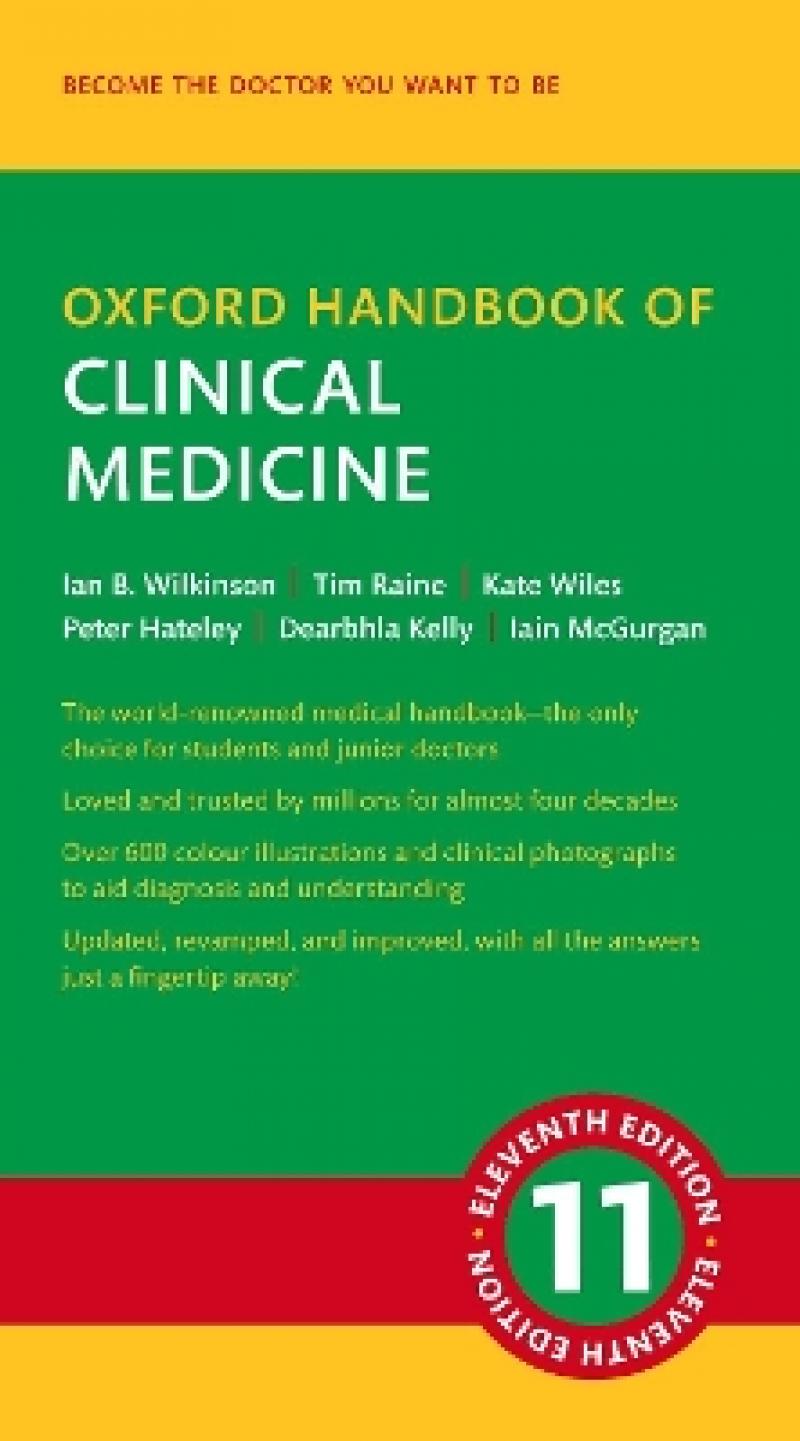Created initially from a medical students final revision notes. Concise, balanced, practical and plastic-covered to repel unmentionable liquids and yet containing enough humility and humanity for its voice to be that of a supportive experienced friend rather than a critical professor.
Professor Max Watson, eHospice
Review from previous edition The bees' knees of medicine. . . A brilliant all-round book.
The Student Room
Incredibly helpful in almost all situations, information well laid out and easy to find, engaging to read ... useful asides to aid memorisation, essential algorithms/reference intervals helpfully situated on front and back inside covers; a generally excellent and clearly very well-thought-out book.
Tom Dalton, University of Birmingham, UK
I very much appreciated the very human and caring aspect it brings to clinical medicine, it's lovely to have the dry, biomedical material broken up with humorous, motivational and touching stories.
Sam Siljee, University of Otago, New Zealand
THE best book that a medical student could ever use. Everything is so easy to find, and is just enough depth for me!
Alexander Wibberley, 3rd year medical student, University of Leeds
Like many other students I use the book as a quick reference/recall and revision tool, and for that it is (for lack of a better word) perfect. Every medical student in their clinical years should own one of these, and I think most of them already do! If you don't you are missing out.
Paddy Green, almostadoctor.co.uk
I am delighted to say that this book just gets better and better and this current edition is simply superb...It acts as a brilliant and practical reference source whilst allowing the reader to dip in and out of the book for specific topics. It is well written and acts like a textbook but the information it delivers is more practical and supportive for a front-line clinician...Once read, the reader is highly informed on a current topic and can convey this information to a patient...It is excellent value for money.
Dr Harry Brown, Pavilion Health Today
